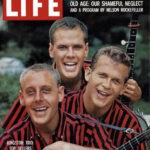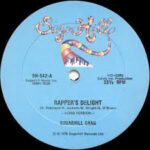U2, renowned for their layered and often enigmatic lyrics, have crafted songs that resonate on multiple levels, and “Stay (Faraway, So Close!)” is no exception. Like many of Bono’s compositions, this track, often referred to as the “Stay Song” by fans, invites listeners into a world of personal interpretation while hinting at specific narratives. Let’s delve into the possible meanings behind this compelling song.
One prevalent interpretation of “Stay” explores the somber theme of an abusive relationship. This perspective paints a picture of a woman trapped in a cycle of mistreatment, yearning for the normalcy of healthy, loving partnerships she observes in others. The lyrics suggest a history of disappointment, leading her into a situation she believed would offer solace, only to find herself in a life she didn’t envision and performing actions contrary to her true self. Lines like “Don’t smoke, don’t even want to” poignantly capture this sense of forced conformity and loss of personal agency within the relationship.
The evocative line, “Dressed up, like a car crash, the wheels are turning but you’re upside down,” encapsulates the chaotic and disorienting nature of such a dynamic. She may appear put-together on the surface, but internally, her world is overturned. The song further illustrates the emotional neglect and invalidation she endures. Phrases such as “talks at her, looks through her,” highlight her partner’s dismissive behavior, rendering her invisible and unheard within the relationship. The lyric “Lip synch with the talk shows” suggests a weariness and resignation, implying she’s heard these empty promises and justifications countless times before, becoming a detached observer in her own life, mirroring the superficiality of daytime television.
The line, “Satellite television, you can go anywhere,” introduces a contrasting desire for escape and a longing for a different reality. While television offers a vicarious escape to places like “Miami, New Orleans,” it underscores her yearning to physically break free from her current circumstances and experience a life beyond abuse. The yearning for tangible change is palpable throughout this interpretation of the “stay song”.
Alternatively, “Stay” offers a spiritual interpretation, viewed through the lens of an angelic guardian. In this context, the song is sung from the perspective of a celestial being, intimately close yet imperceptible to the person they protect. From this viewpoint, the lyrics take on a different resonance. The angel, existing in a realm “faraway in Heaven or somewhere,” is present but unseen. The lines suggesting “we look, but look through them, when they touch us, we don’t feel it,” beautifully illustrate the ethereal and intangible nature of an angel’s presence in the earthly realm.
The final lines, in this angelic interpretation, could depict a moment of divine frustration. Unable to directly intervene and change the course of events, the angel’s presence, though constant, remains ineffective in a tangible sense. The idea of the angel “hitting the ground as a human” suggests a drastic, perhaps desperate, act of incarnation, motivated by a desire to finally make a real impact and break through the barrier of the unseen. This interpretation of the “stay song” concludes with a powerful image of transformation and a descent into the human experience.
Ultimately, the beauty of “Stay (Faraway, So Close!)” and many U2 songs lies in their lyrical ambiguity and richness. Whether interpreted as a poignant narrative of abuse and yearning for escape, or a spiritual reflection on angelic guardianship and intervention, the “stay song” resonates deeply because it taps into universal human experiences of longing, isolation, and the search for connection. Bono’s songwriting, as always, provides a canvas for multiple meanings, allowing listeners to find their own truths within the song’s evocative verses.


